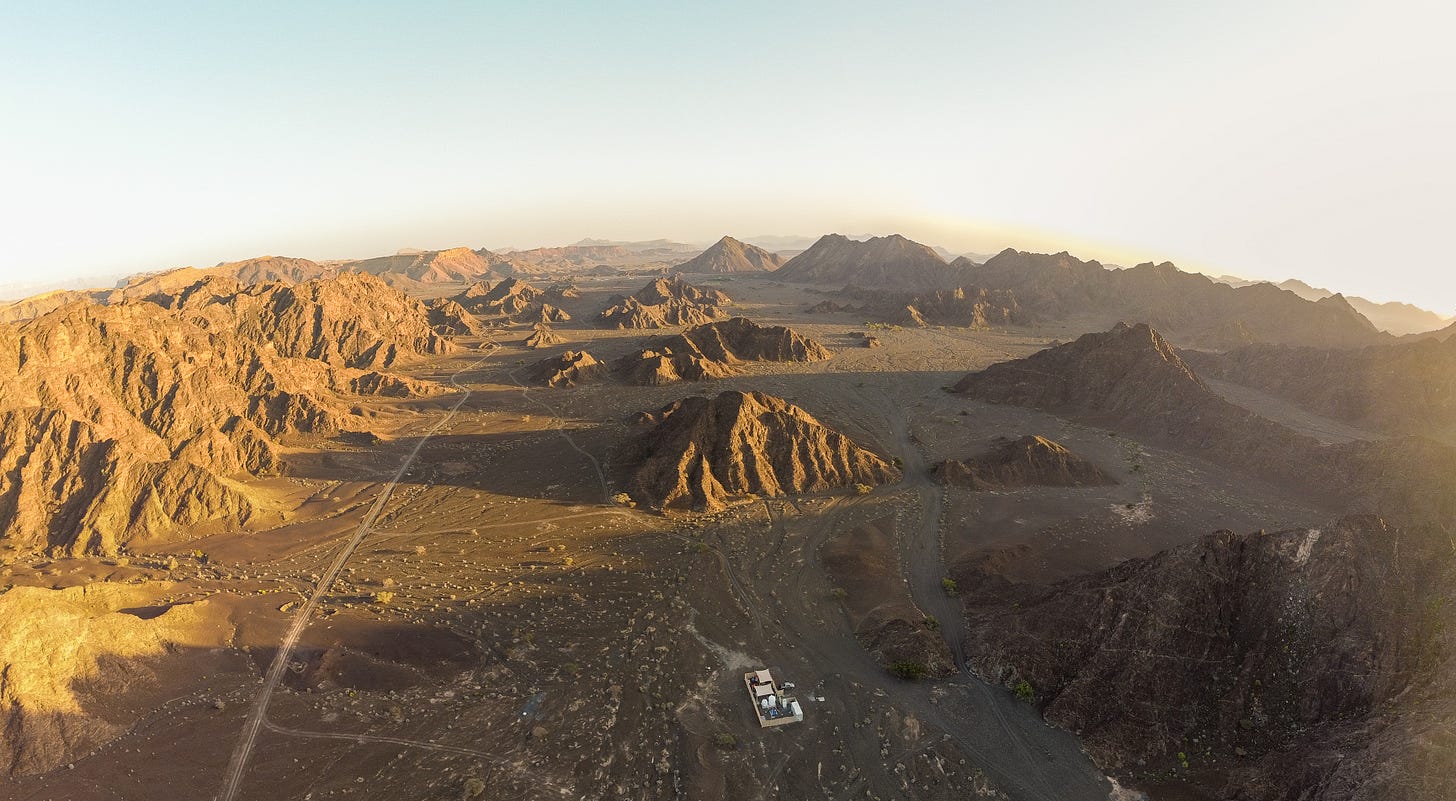How an award-winning Omani startup plans to turn peridotite rock into a carbon vault
By mimicking and accelerating a natural process, 44.01's technology could offer industries a permanent solution for their emissions.
Omani climate tech company 44.01 has developed a way to permanently transform carbon dioxide into rock in less than a year – a process that normally takes decades in nature.
The company, which recently secured €33.9 million ($37 million) in Series A funding led by Equinor Ventures (with significant participation from Shorooq Partners in the UAE), dissolves captured CO2 in seawater before injecting it deep underground, where it reacts with naturally occurring minerals to form stable carbonate rock.
Named after CO2's molecular mass, 44.01 has won the 2022 Earthshot Prize. It is an XPRIZE Carbon Removal finalist recognition that has helped attract major investors, including Amazon's Climate Pledge Fund, Breakthrough Energy Ventures, and Siemens Financial Services.
For industries like aviation struggling to reduce emissions, companies like 44.01 offer a new pathway. While airlines currently focus on sustainable aviation fuels (SAF) to cut emissions, these remain expensive and in limited supply.
44.01 believes that its permanent storage technology could instead allow airlines to offset their emissions by paying for carbon to be removed from the atmosphere and turned to stone – similar to how Swiss Air, Lufthansa and British Airways already partner with other carbon removal companies in this sector.
How the technology works
"We take CO2 directly captured from the atmosphere or from industrial sources. We dissolve that CO2 then in water to create a concentrated solution – you could think of it as sparkling water," explains Ehab Tasfai, 44.01's Chief Technology Officer.
When injected underground, this dissolved CO2 reacts with minerals in the peridotite rock to form stable carbonate minerals. A successful pilot with Abu Dhabi National Oil Company (ADNOC) mineralised 10 tonnes of CO2 in under 100 days, leading to plans for a 300-tonne scale-up.
Powering carbon removal with the desert sun
The UAE pilot project, the company's first international deployment, showcases an innovative approach to powering carbon removal.
Working with Abu Dhabi Future Energy Company (Masdar), 44.01 integrated the first mineralisation project running entirely on off-grid renewable energy, combining solar PV with battery systems for 24-hour operations.
This integration demonstrates how desert regions' abundant solar resources could power large-scale carbon removal operations. The process requires minimal energy compared to other carbon removal methods, with the main demand coming from fluid injection.
The technology addresses several key challenges facing carbon removal:
It uses abundant seawater instead of precious freshwater resources, which is particularly important in water-scarce regions.
The mineralisation process occurs approximately 1,000 metres underground, where natural warmth and pressure from the weight of rock above accelerate the chemical reaction with peridotite formations rich in calcium and magnesium minerals.
"If Southern Europe wants to store its CO2, it has to ship or truck it or put it in the pipeline all the way up to the North Sea, then that potentially costs hundreds of dollars per ton," says Charlie Booth, Chief Corporate Affairs Officer. "If we can build mineralisation sinks in Southern Europe that are cost-comparable or even slightly more expensive than conventional storage, then it could still be a much more commercially viable solution."
From local success to global potential
The potential scale is massive. Peridotite, the rock type used in the process, surfaces on every continent. Each tonne can mineralise up to half a tonne of CO2 permanently. The company is targeting regions with these deposits, renewable energy access, and supportive regulations for expansion.
Beyond environmental benefits, 44.01's expansion creates opportunities in regions traditionally dependent on fossil fuels. The company works closely with supportive local communities in the UAE and Oman, ensuring shared benefits from project development while creating new economic opportunities.
Our latest report explores the potential of carbon dioxide removal (CDR), the challenges it faces, and why it could be the breakthrough aviation needs. Download the full report for free here.





